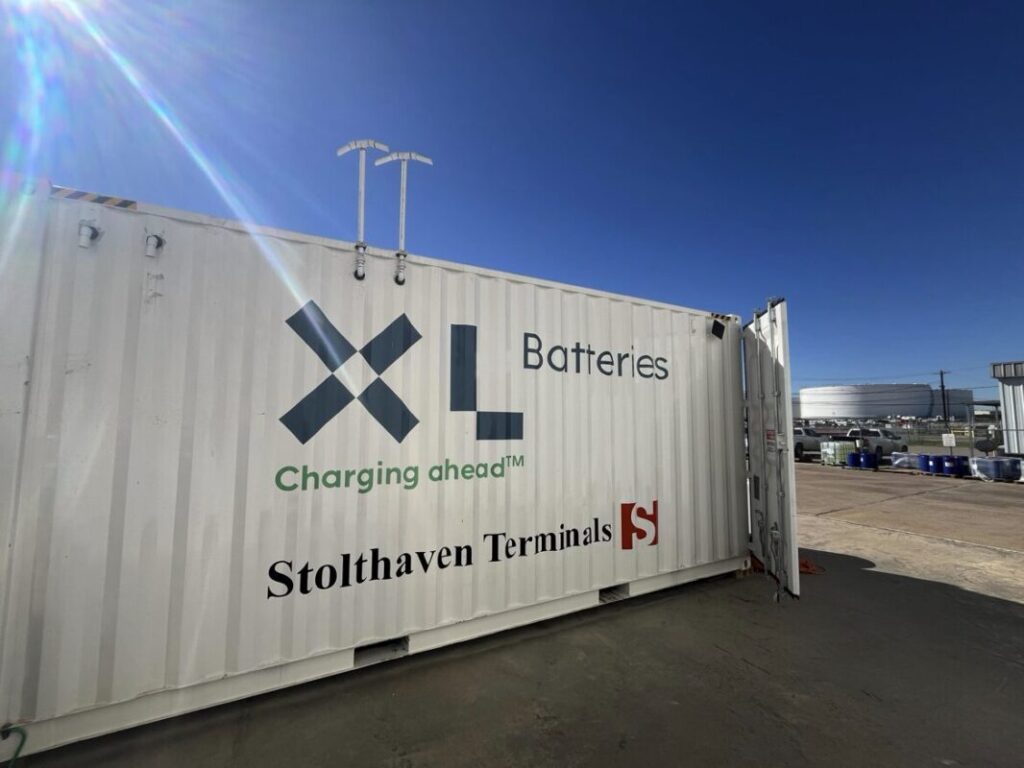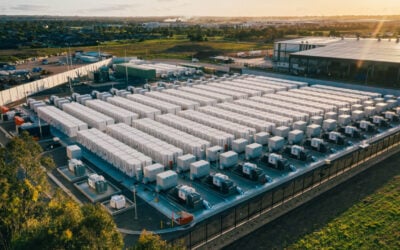
Flow battery developer XL Batteries has commissioned its first organic flow battery through a pilot project with global storage terminals provider Stolthaven Terminals.
This is the first deployment of XL’s long-duration energy storage (LDES) technology. It is installed at Stolthaven’s Houston, Texas facility.
Speaking with Energy-Storage.news, XL Batteries co-founder and CEO Dr. Thomas Sisto said of the pilot project:
“The project is relatively moderate for flow batteries. Scale was not the goal for this deployment, as flow battery technology has already been proven to work on a large scale.”
Try Premium for just $1
- Full premium access for the first month at only $1
- Converts to an annual rate after 30 days unless cancelled
- Cancel anytime during the trial period
Premium Benefits
- Expert industry analysis and interviews
- Digital access to PV Tech Power journal
- Exclusive event discounts
Or get the full Premium subscription right away
Or continue reading this article for free
“Instead, the purpose of this deployment is to generate high-quality operational data that demonstrates how our proprietary commercial technology performs in the field compared to conventional vanadium-based flow batteries.”
Sisto added that the data from this pilot will allow XL ‘to move immediately to commercial scale’.
The company plans to do this by using the existing engineering of a Vanadium redox flow battery (VRFB) for XL’s technology and specific needs.
Sisto says that as a next step, “we plan to demonstrate three commercial-scale units and we are currently looking for partners.”
As the co-founder and CEO recently explained in an interview with ESN Premium , XL Batteries uses a pH-neutral chemistry found while testing a red paint’s ability to store a charge.
Sisto also explained that the company’s technology works much the same as a VRFB, but rather than dissolving Vanadium in sulfuric acid, the cell uses organic molecules and pH-neutral water.
The company claims that the ready availability of its materials should also make the systems much more affordable than a VRFB or several other types of flow batteries.
In the interview, Sisto notes that near-term costs are expected to be less than US$200/kWh for long durations, which would make the system cheaper than lithium-ion, according to cost analysis from BloombergNEF.
XL’s partnership with Stolthaven started in January 2023 when the two companies announced a memorandum of understanding (MOU) to develop a flow battery with industrial-scale electricity storage capability.
Stolthaven anticipates that the project will yield financial and operational advantages, including, as stated, the potential to offer energy storage near its facilities and shore power to vessels visiting its terminals in the future. Stolthaven provides storage services to industries that include chemicals, petroleum, gas and biofuels.
XL also notes that cost-effective and safe LDES solutions are crucial during this urgent period for US energy security.
With an increasing trade war and uncertainty for Biden-era energy policies, as well as increasing energy demand from data centres and environmental concerns like extreme weather, there is certainly a need that XL hopes to effectively address.





